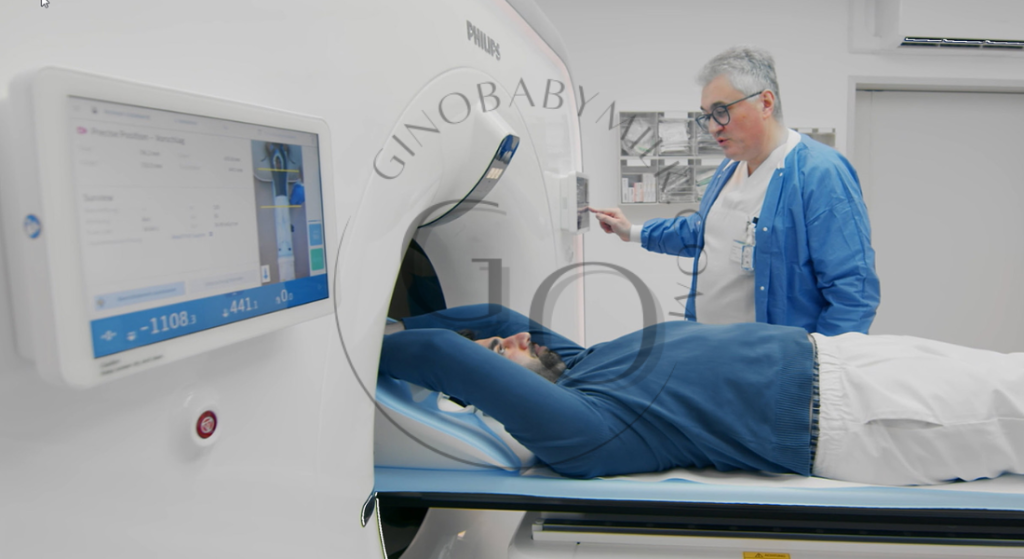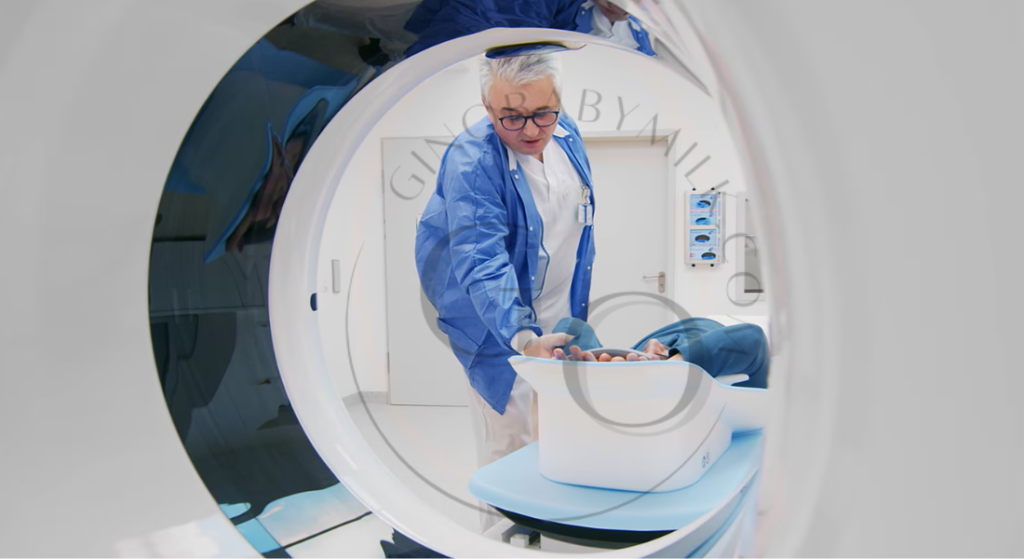blog
Premium AI Powered MRI Machine Offering Unmatched Precision and Advanced Imaging Technology
In the world of medical imaging, precision is paramount. The advancements in technology have significantly enhanced diagnostic accuracy, and one of the most revolutionary innovations in this field is the premium AI powered MRI machine. This cutting-edge technology combines artificial intelligence with traditional MRI imaging techniques to offer unmatched precision, making it an essential tool for healthcare professionals. Whether it’s for diagnosing complex conditions or providing more detailed images for better treatment planning, the premium AI powered MRI machine is setting a new standard for excellence in medical imaging.
The Evolution of Premium AI Powered MRI Machine Offering
Magnetic Resonance Imaging (MRI) has long been a vital tool in the medical field, providing detailed, non-invasive images of the body’s internal structures. Over the years, the technology behind MRIs has advanced rapidly, with AI powered MRI machines emerging as one of the most promising breakthroughs. The incorporation of artificial intelligence (AI) into MRI technology has allowed for faster, more accurate imaging, ultimately improving patient outcomes.
Traditional MRIs rely on powerful magnets and radio waves to create detailed images of organs and tissues. However, the premium AI powered MRI machine goes beyond these fundamental principles by using AI algorithms to enhance the clarity, speed, and accuracy of images. The result is a more efficient diagnostic process that allows doctors to make better-informed decisions more quickly.
The Role of AI in MRI Machines
The use of artificial intelligence in medical devices has become a game-changer, and nowhere is this more evident than in AI powered MRI machines. These machines incorporate AI algorithms that can automatically analyze images, identify patterns, and assist in diagnosis. The AI is trained using vast datasets of medical images, enabling it to recognize subtle details that might be missed by the human eye.
One of the most significant benefits of AI powered MRI machines is their ability to offer unmatched precision. By analyzing MRI images with incredible accuracy, AI can detect even the most minute abnormalities, improving the chances of early diagnosis and treatment. This is particularly important in detecting conditions like cancer, neurological disorders, and cardiovascular diseases, where early detection is critical to successful treatment.
Additionally, the AI in these machines can help with the interpretation of results. It can assist radiologists in identifying patterns that might not be immediately obvious, reducing the likelihood of human error. This improved accuracy ensures that patients receive the best possible care and treatment.
Key Benefits of Premium AI Powered MRI Machines
1. Unmatched Precision and Accuracy
The most significant advantage of premium AI powered MRI machines is their unmatched precision. Traditional MRIs provide detailed images, but the addition of AI takes it a step further. AI algorithms can process and analyze vast amounts of imaging data with unparalleled accuracy, helping healthcare professionals identify even the smallest abnormalities. This higher level of precision allows for early detection of conditions, which can be crucial for effective treatment.
2. Enhanced Imaging Technology
Premium AI powered MRI machines incorporate advanced imaging technology that enhances the quality of the images produced. This means that healthcare professionals can view more detailed and clearer images of the body’s internal structures. The clearer the images, the easier it is for doctors to assess the condition and make more informed decisions. AI also helps in optimizing image quality by reducing noise and other artifacts that can interfere with the image.
3. Faster Scanning and Processing
In addition to providing more accurate images, AI powered MRI machines also offer faster scanning and image processing times. The traditional MRI process can be time-consuming, but AI streamlines the process, reducing the time needed for both scanning and analysis. This faster turnaround time improves the efficiency of healthcare facilities and allows patients to receive their results more quickly.
4. Reduced Human Error

AI algorithms are highly effective in detecting abnormalities and nuances in images, which helps reduce the potential for human error. While radiologists are highly trained professionals, the human eye can occasionally miss subtle details. With AI powered MRI machines, the technology assists doctors in ensuring that no critical detail is overlooked, resulting in more accurate diagnoses and treatment plans.
5. Improved Patient Experience
One of the most important aspects of any medical technology is its impact on the patient experience. Premium AI powered MRI machines help to reduce the discomfort and anxiety that can sometimes accompany traditional MRI scans. The faster scanning process means less time spent in the machine, which can make the experience less stressful for patients. Additionally, the higher level of precision means that fewer follow-up scans are necessary, leading to a more streamlined process.
Applications of AI Powered MRI Machines
The applications of AI powered MRI machines span a wide range of medical fields, with particularly significant implications in oncology, neurology, and cardiology.
1. Oncology
In the field of cancer diagnosis, AI powered MRI machines have revolutionized the way tumors are detected. By providing high-resolution imaging and precision analysis, these machines can identify cancerous growths at earlier stages, increasing the chances of successful treatment. The ability of AI to distinguish between benign and malignant growths helps oncologists make better decisions regarding treatment options.
2. Neurology
For neurological disorders, AI powered MRI machines offer detailed imaging of the brain and spinal cord. AI can help identify abnormalities associated with conditions like Alzheimer’s, multiple sclerosis, and brain tumors. The precision of AI enhances the accuracy of diagnosis and helps doctors create more effective treatment plans for patients with neurological conditions.
3. Cardiology
In cardiology, AI powered MRI machines are used to create detailed images of the heart, which helps in diagnosing heart disease and other cardiovascular conditions. The precision of AI allows for the early detection of issues such as heart attacks, strokes, and arterial blockages, enabling doctors to intervene earlier and improve patient outcomes.
The Future of AI Powered MRI Machines
As technology continues to evolve, premium AI powered MRI machines are expected to become even more advanced. The continuous development of AI algorithms will further enhance the precision and accuracy of MRI scans, making it possible to detect conditions at even earlier stages. Additionally, as more data is collected, AI will become better at recognizing patterns and offering insights into a wider range of medical conditions.
We can also expect to see AI powered MRI machines becoming more integrated into telemedicine and remote diagnostics. With the ability to analyze images remotely, doctors will be able to consult with patients and colleagues worldwide, expanding access to high-quality care. The future of medical imaging is bright, with AI playing a central role in shaping its development.
Conclusion
The introduction of premium AI powered MRI machines marks a significant step forward in the field of medical imaging. By offering unmatched precision, advanced imaging technology, and faster processing times, these machines are revolutionizing the way healthcare professionals diagnose and treat patients. From oncology to neurology and cardiology, the impact of AI in MRI machines is already being felt across numerous medical disciplines.
As technology continues to advance, AI powered MRI machines will only improve, offering even greater precision and more efficient diagnostics. For healthcare providers and patients alike, these innovations promise to deliver faster, more accurate diagnoses and, ultimately, better patient outcomes. Embracing premium AI powered MRI machines is not just a step toward innovation; it’s a leap forward in the way we approach healthcare and medical imaging.


